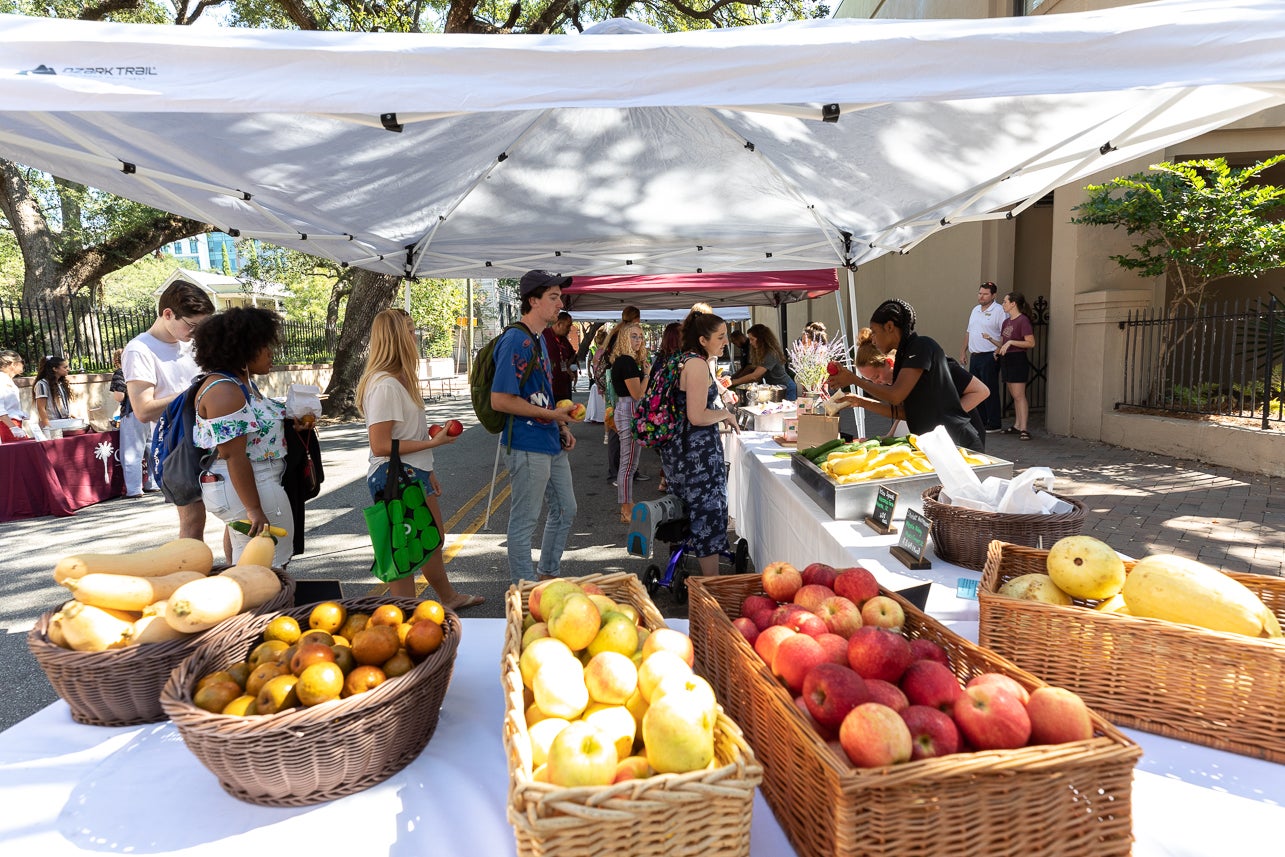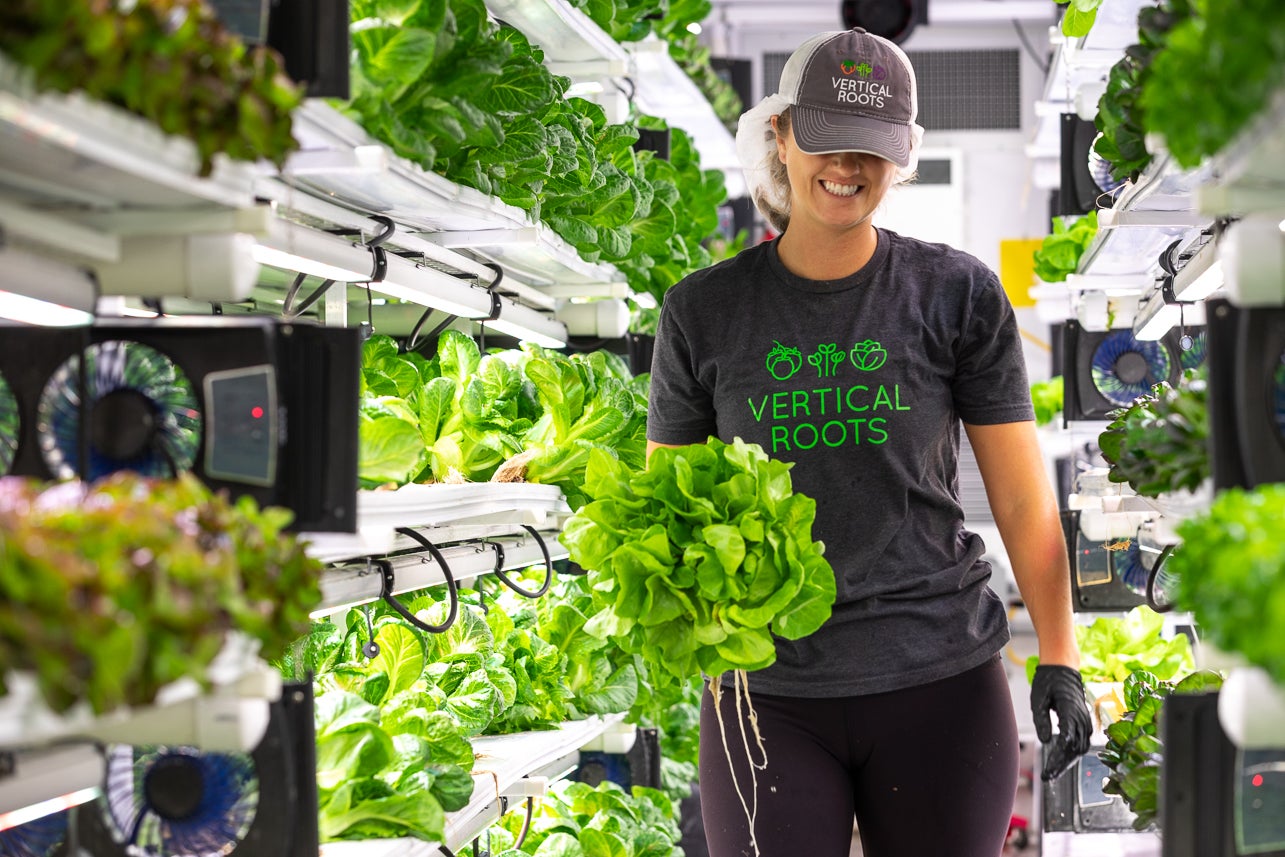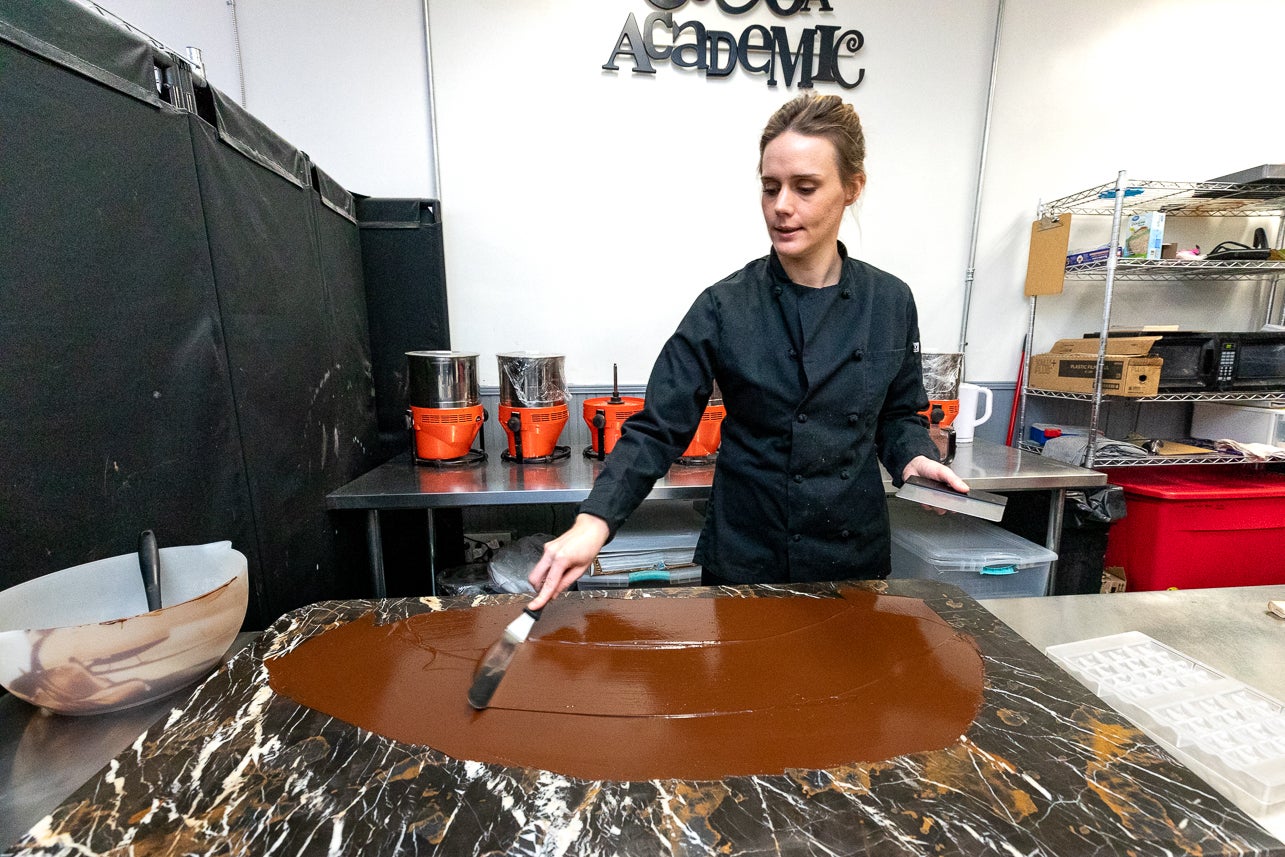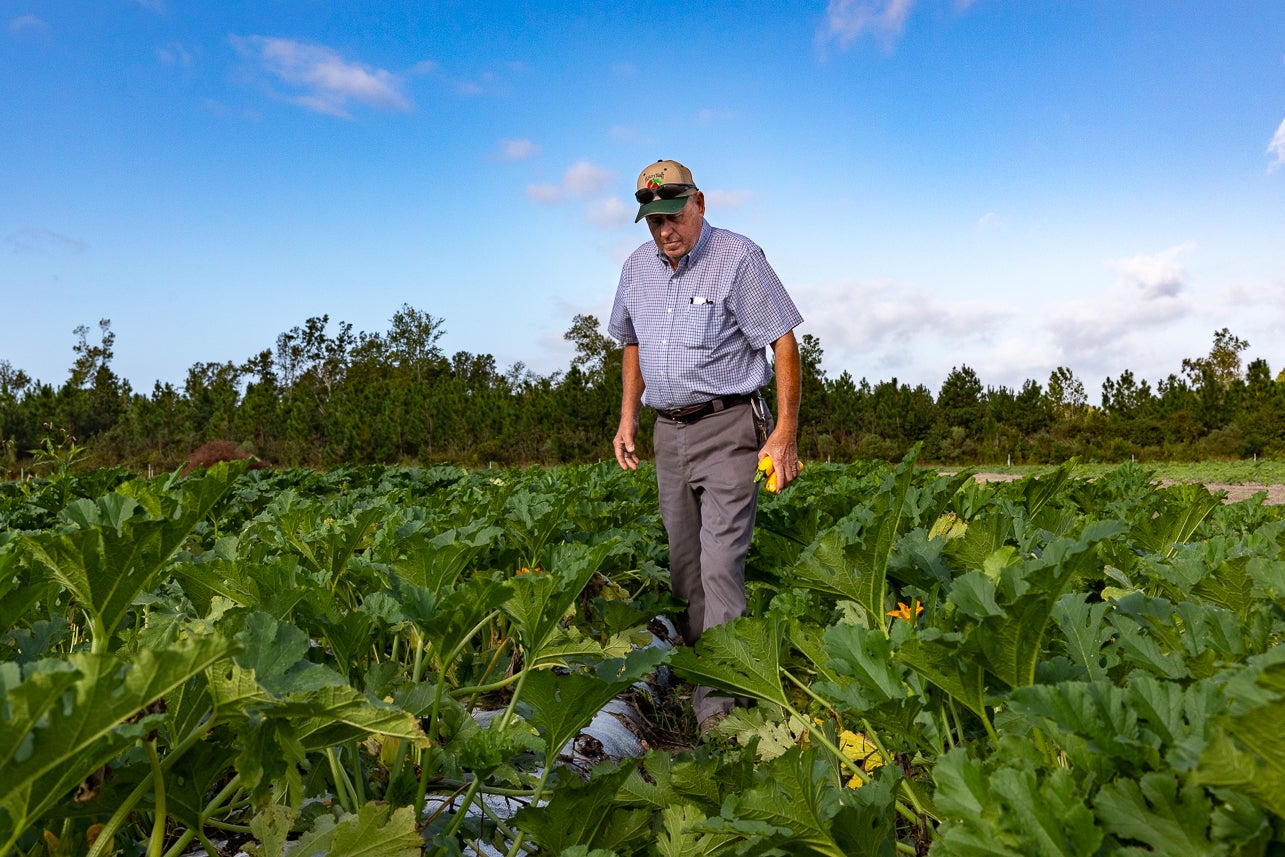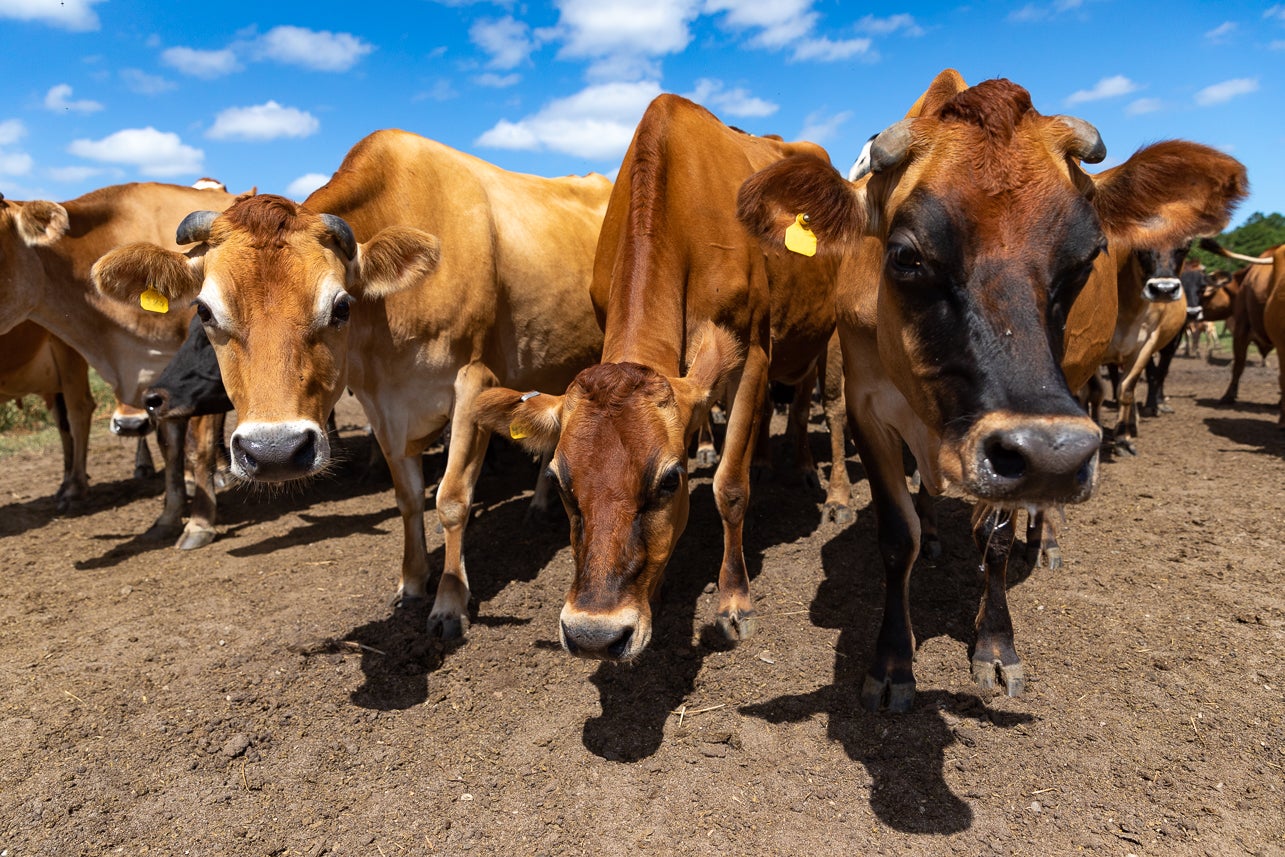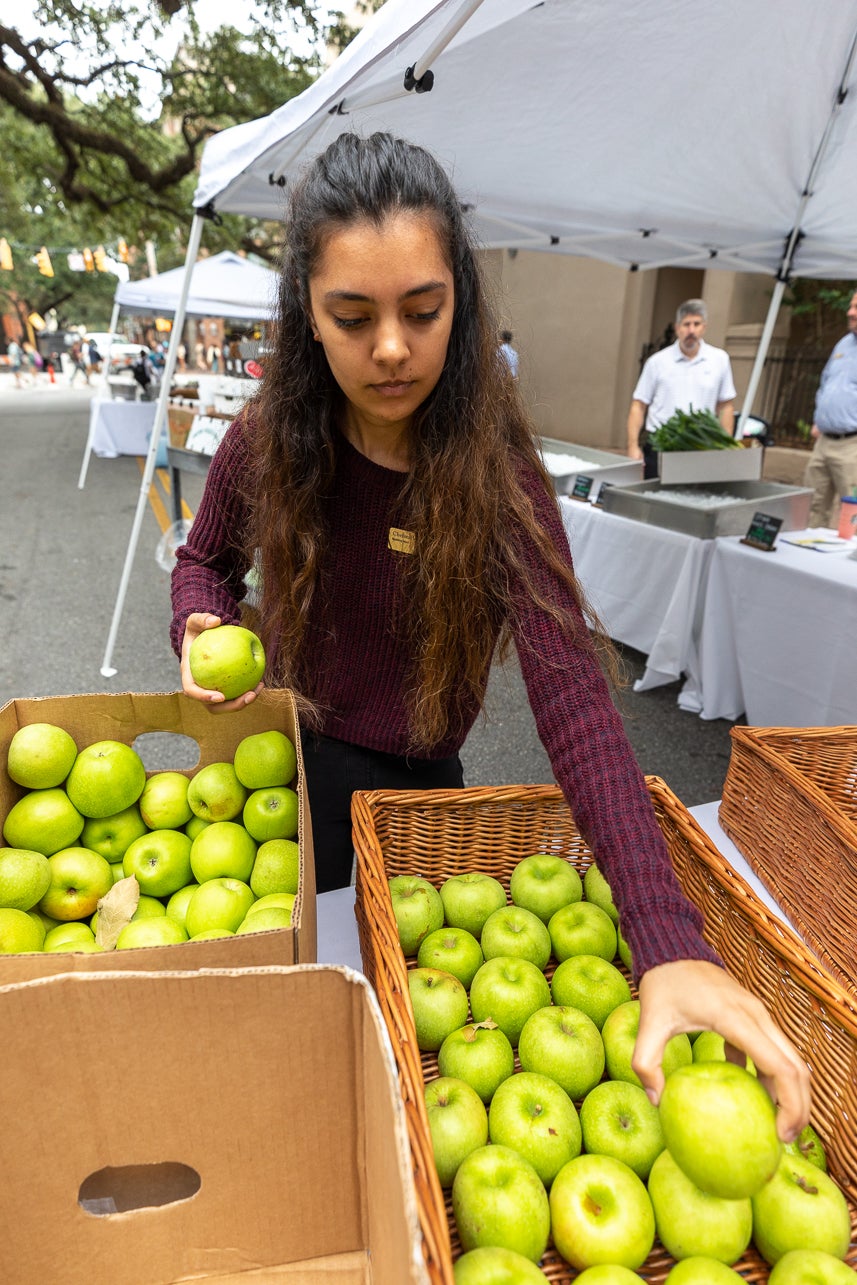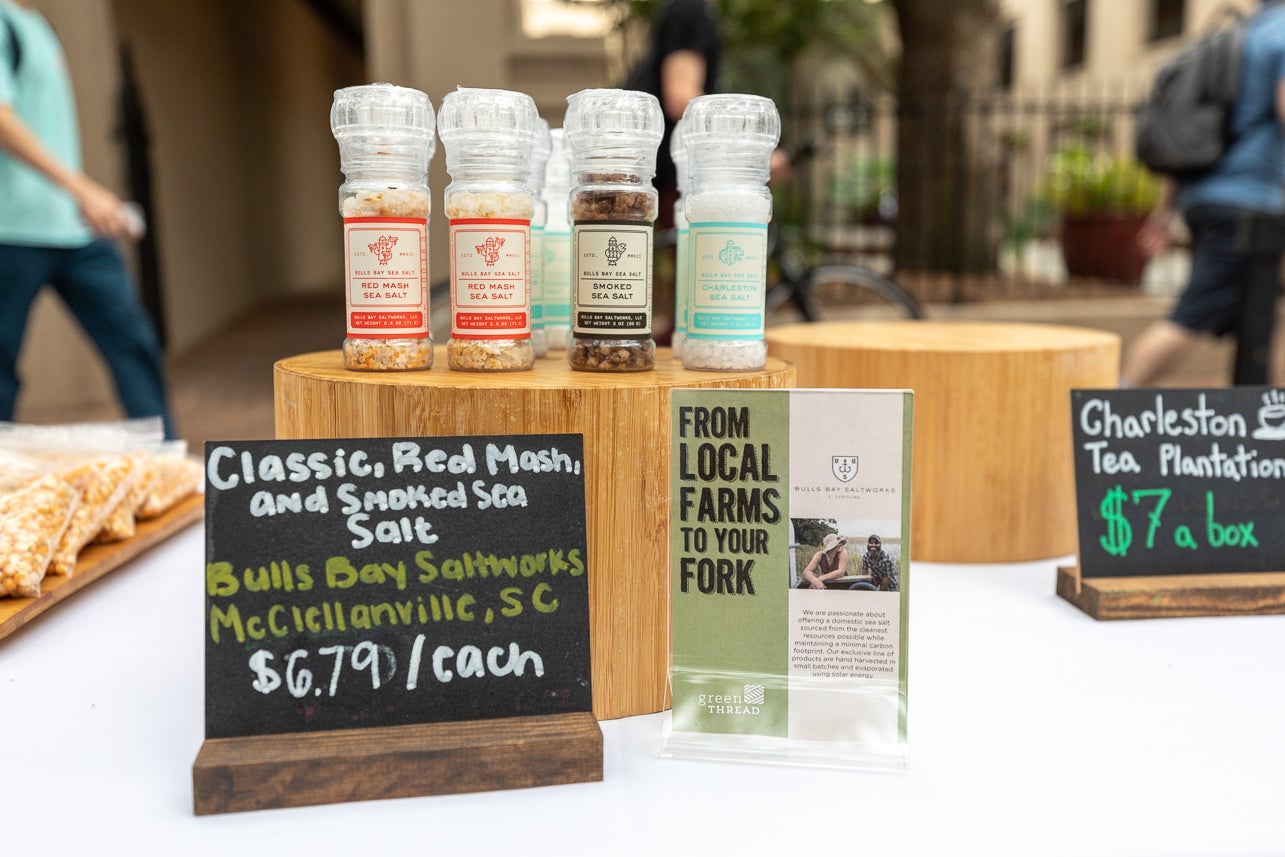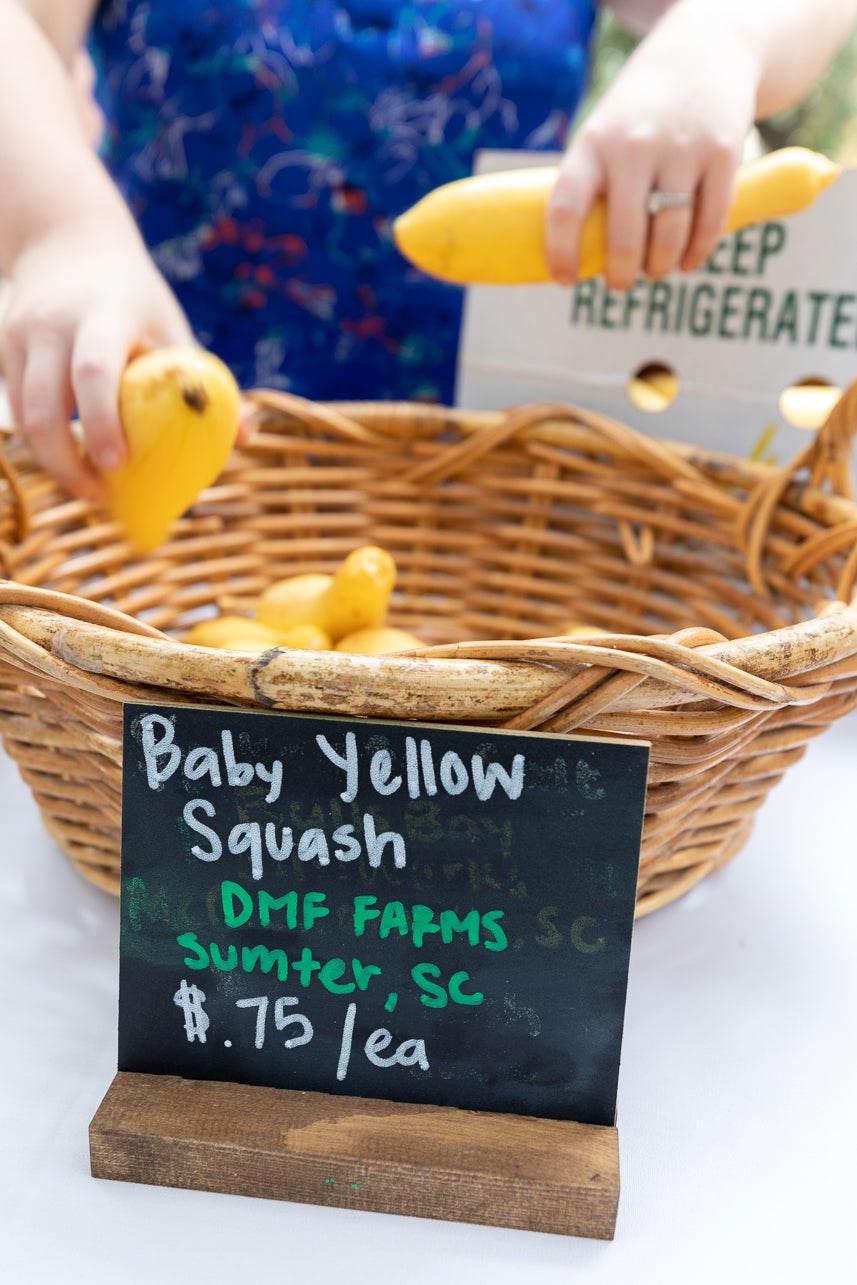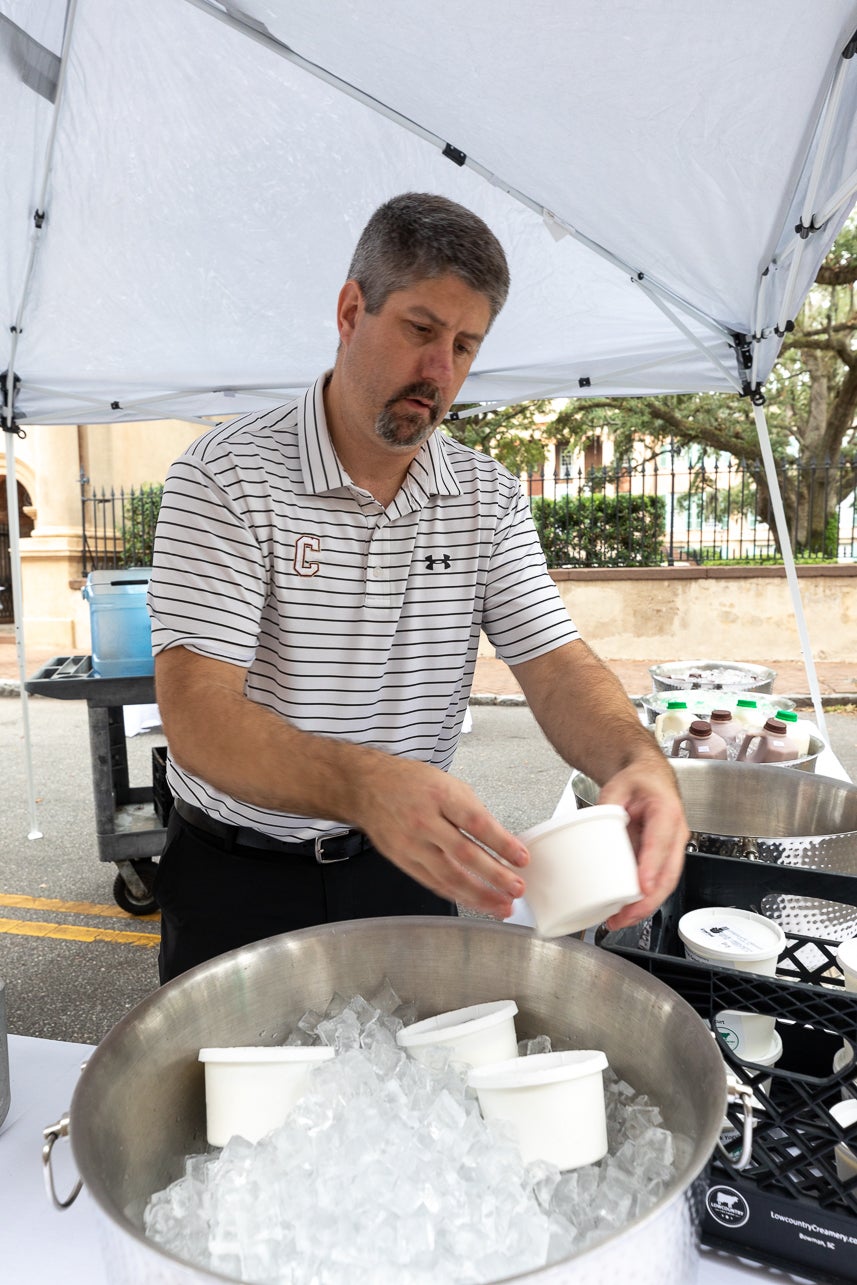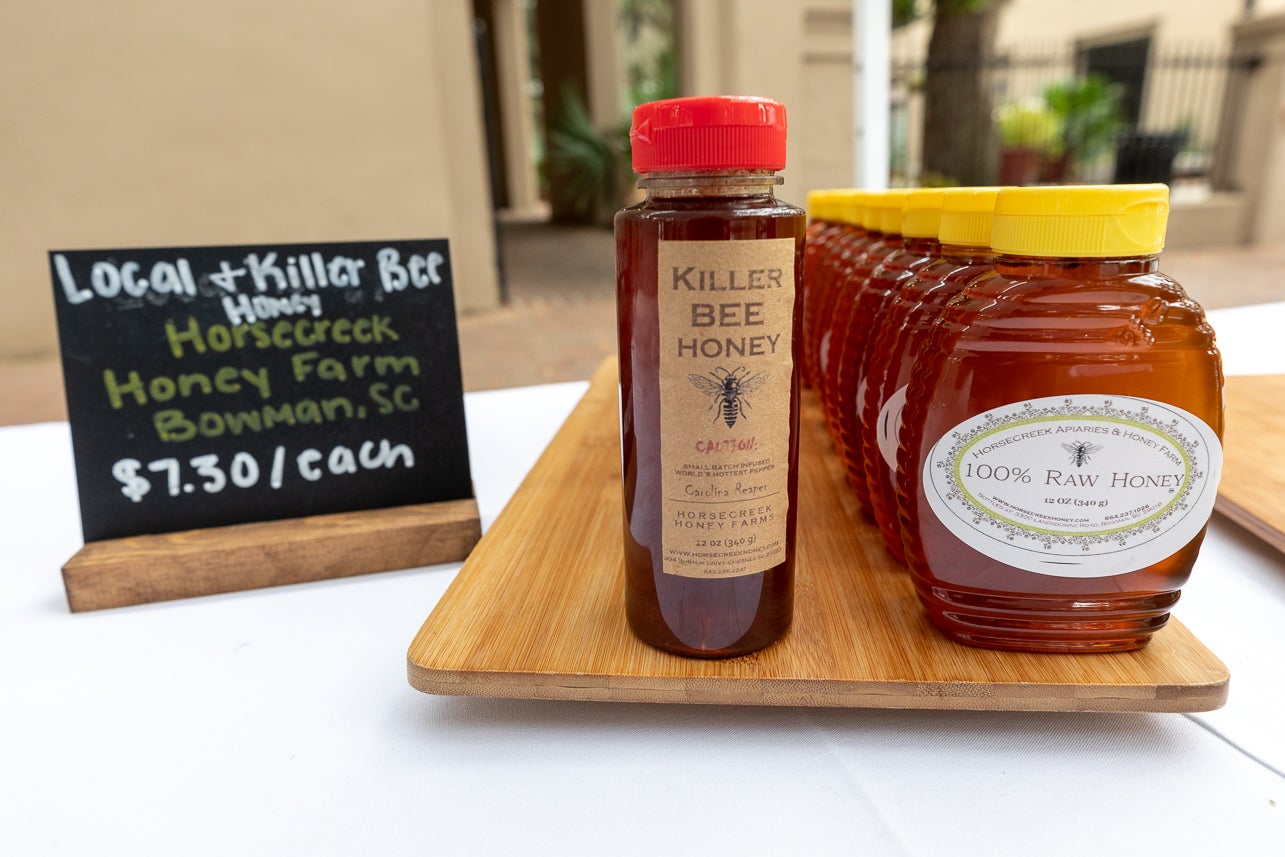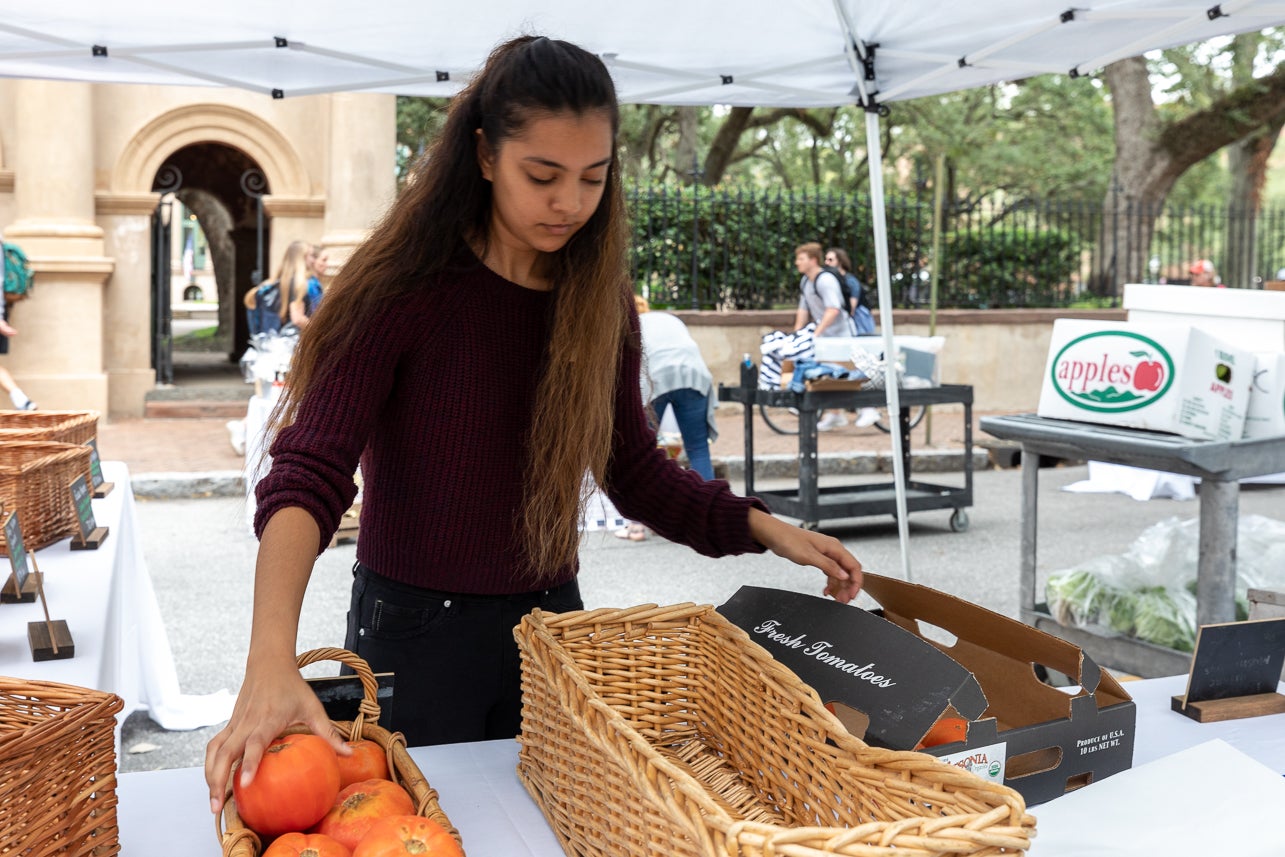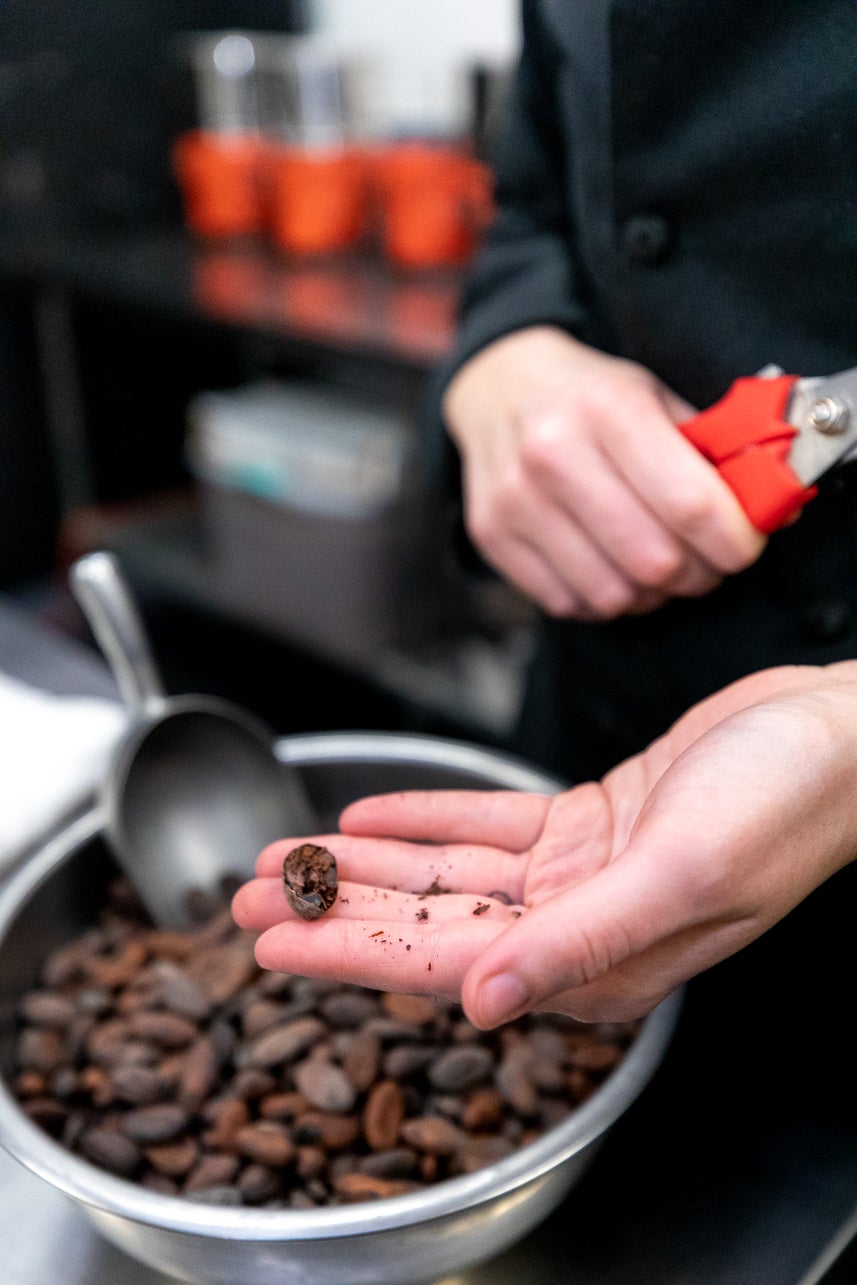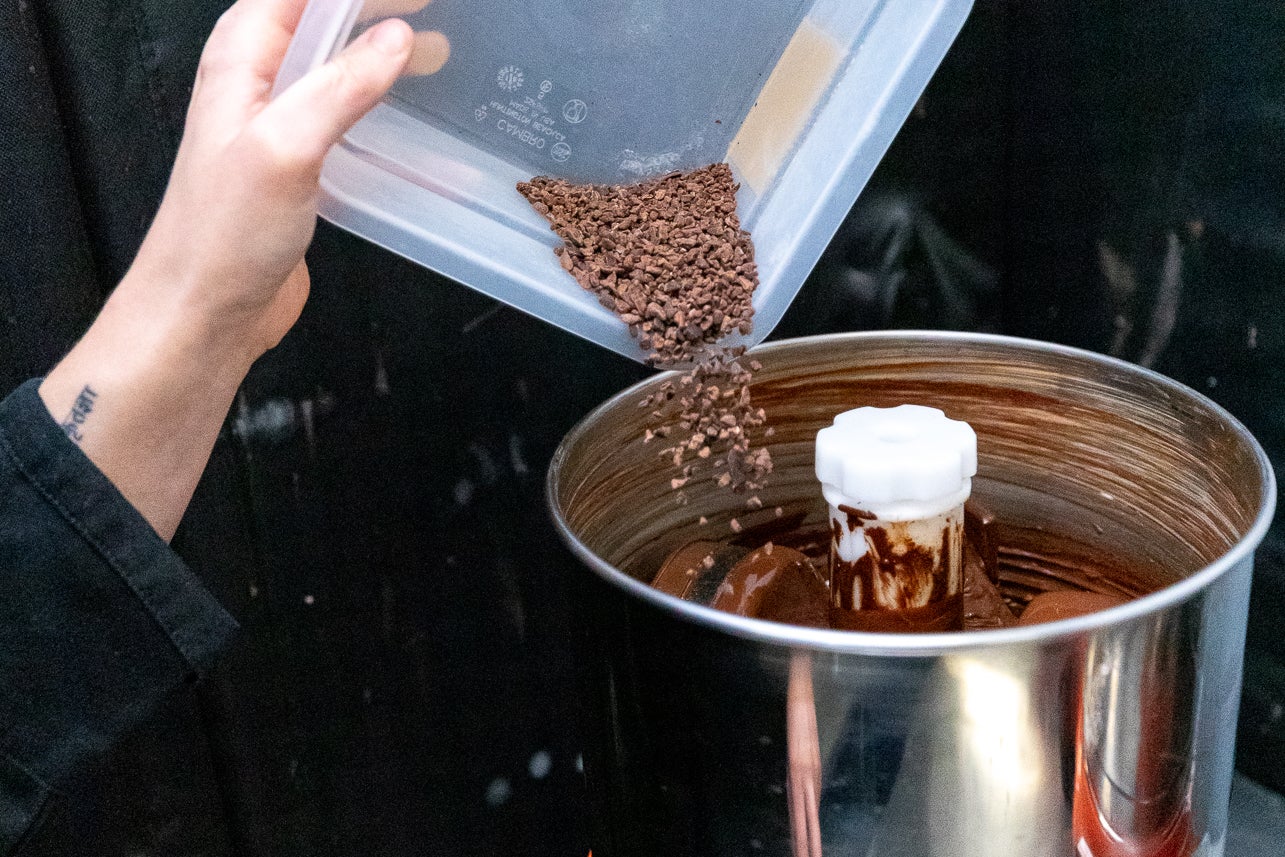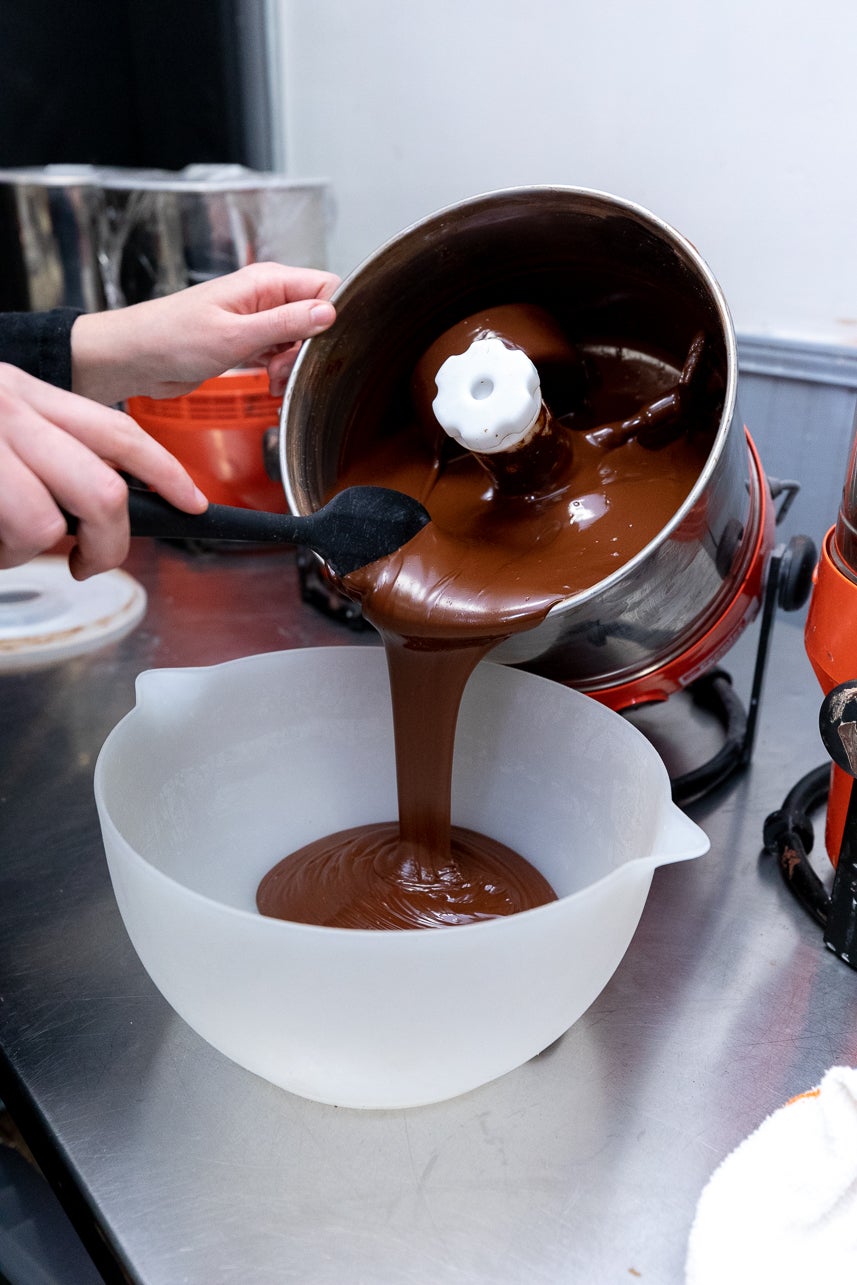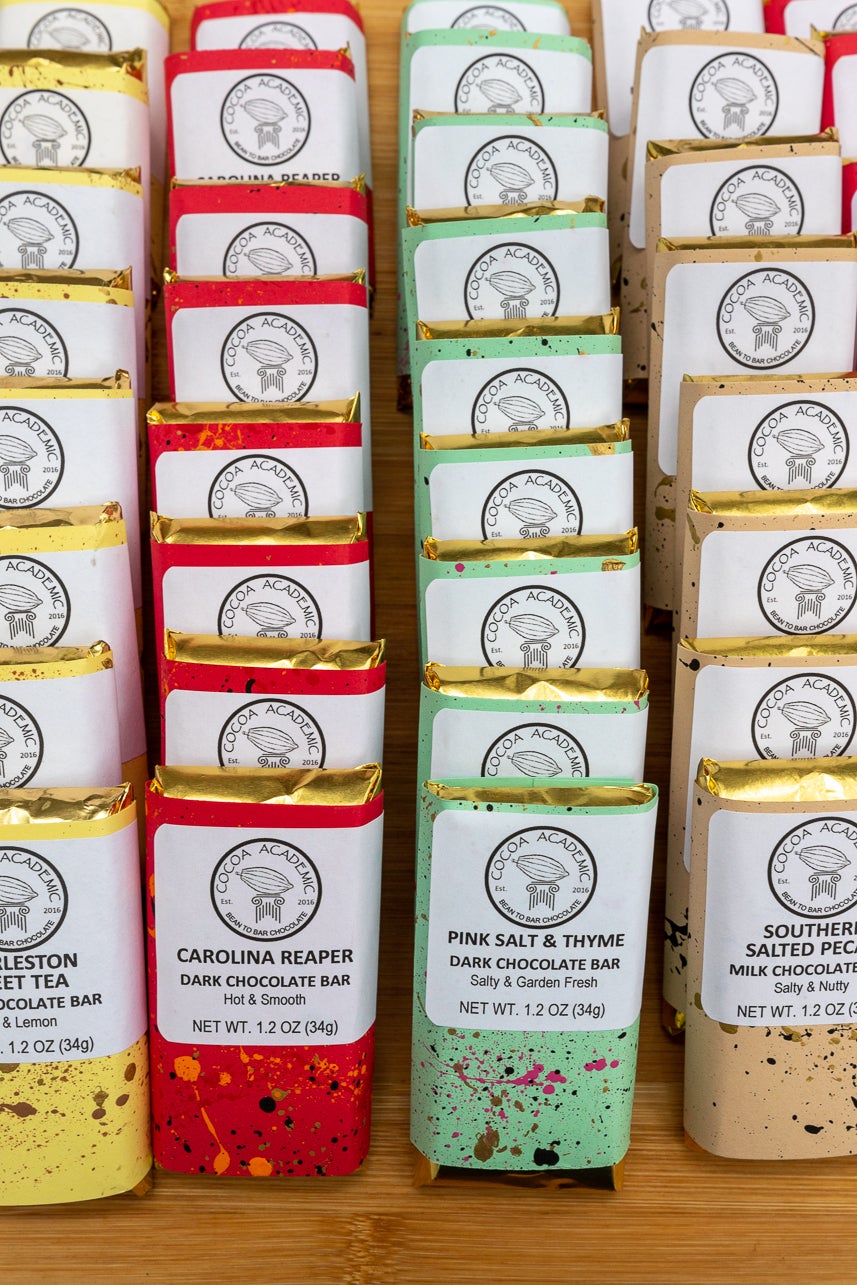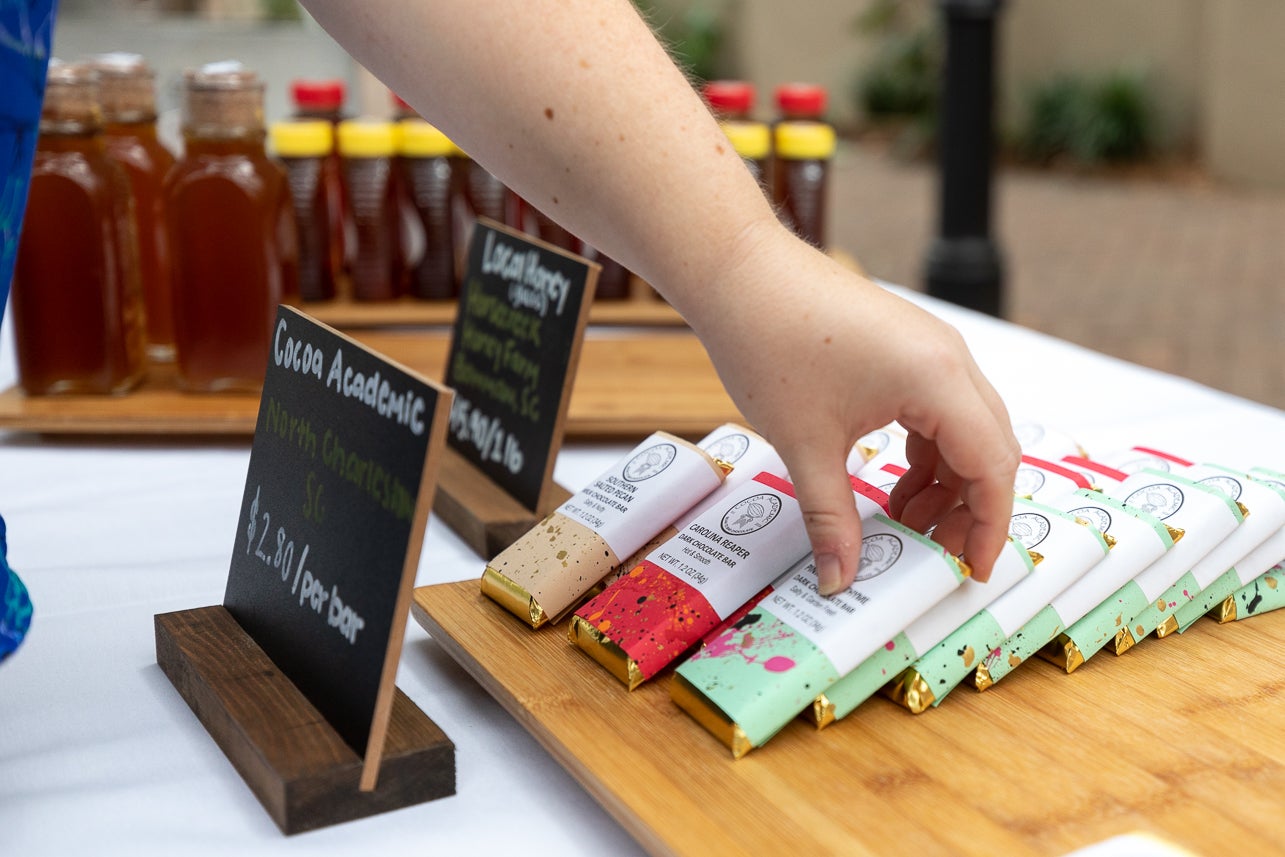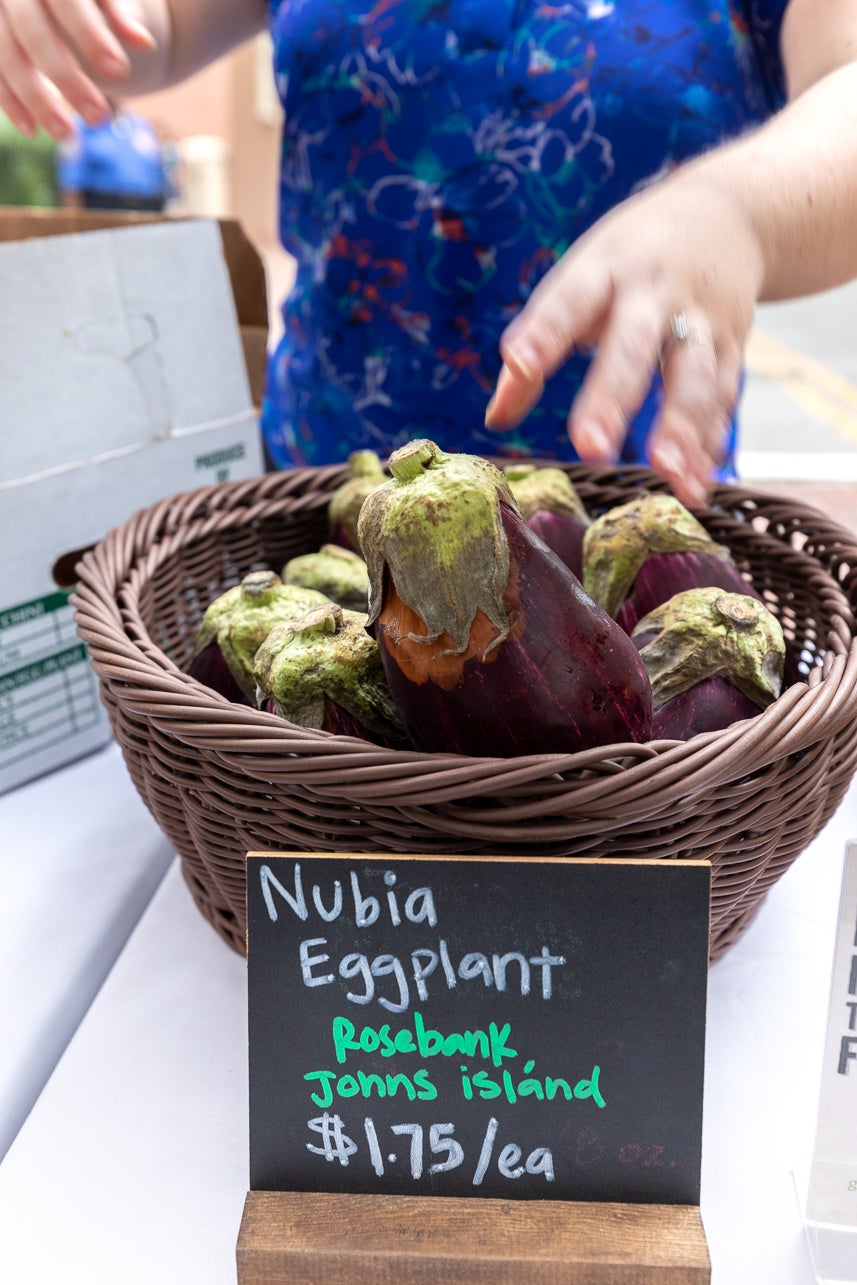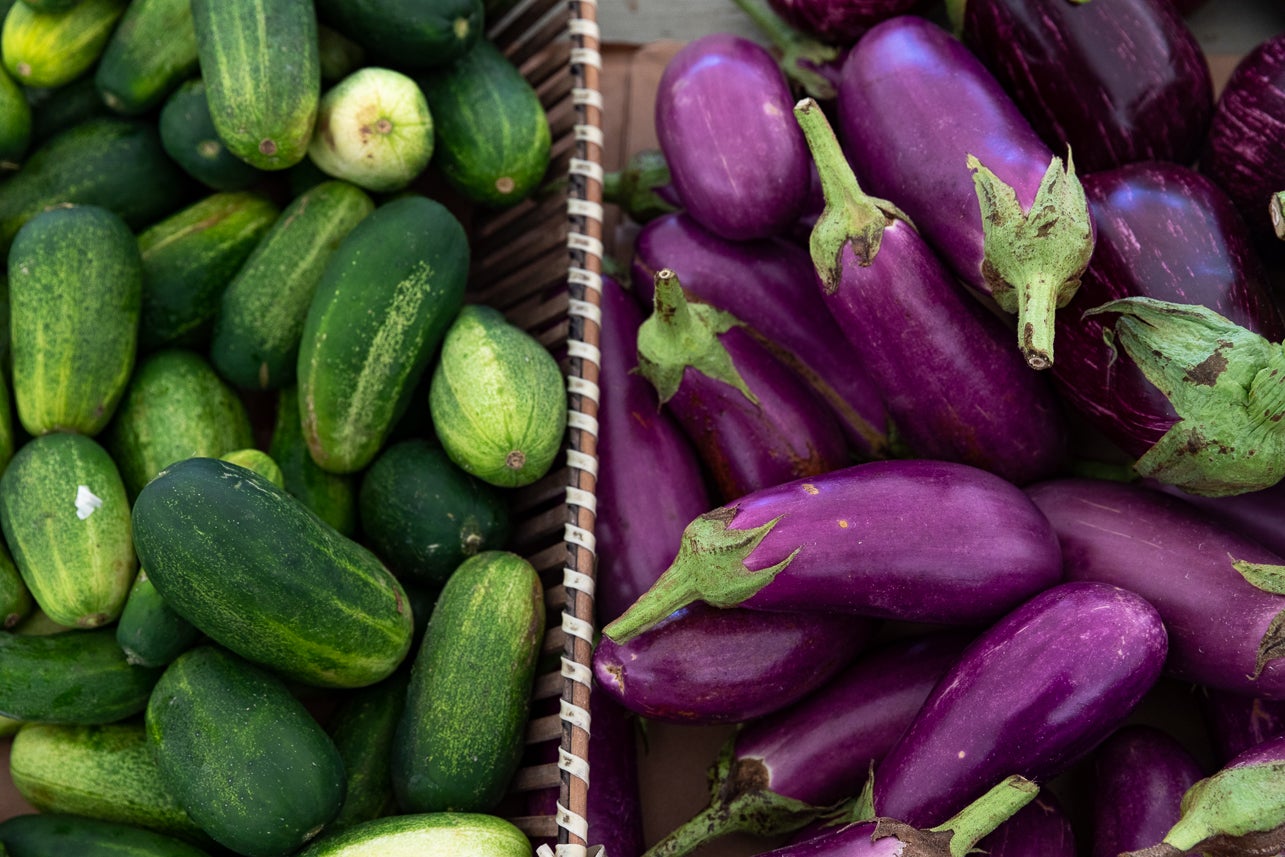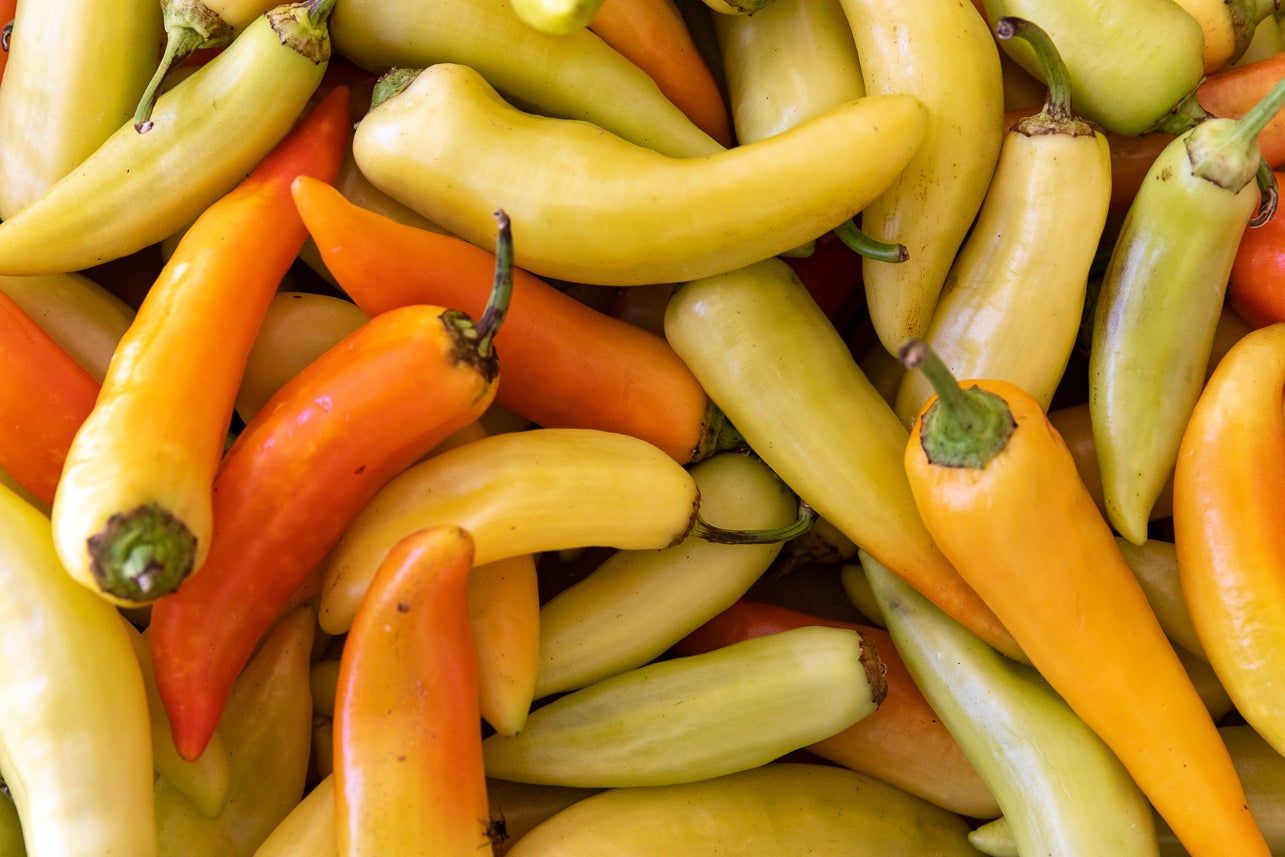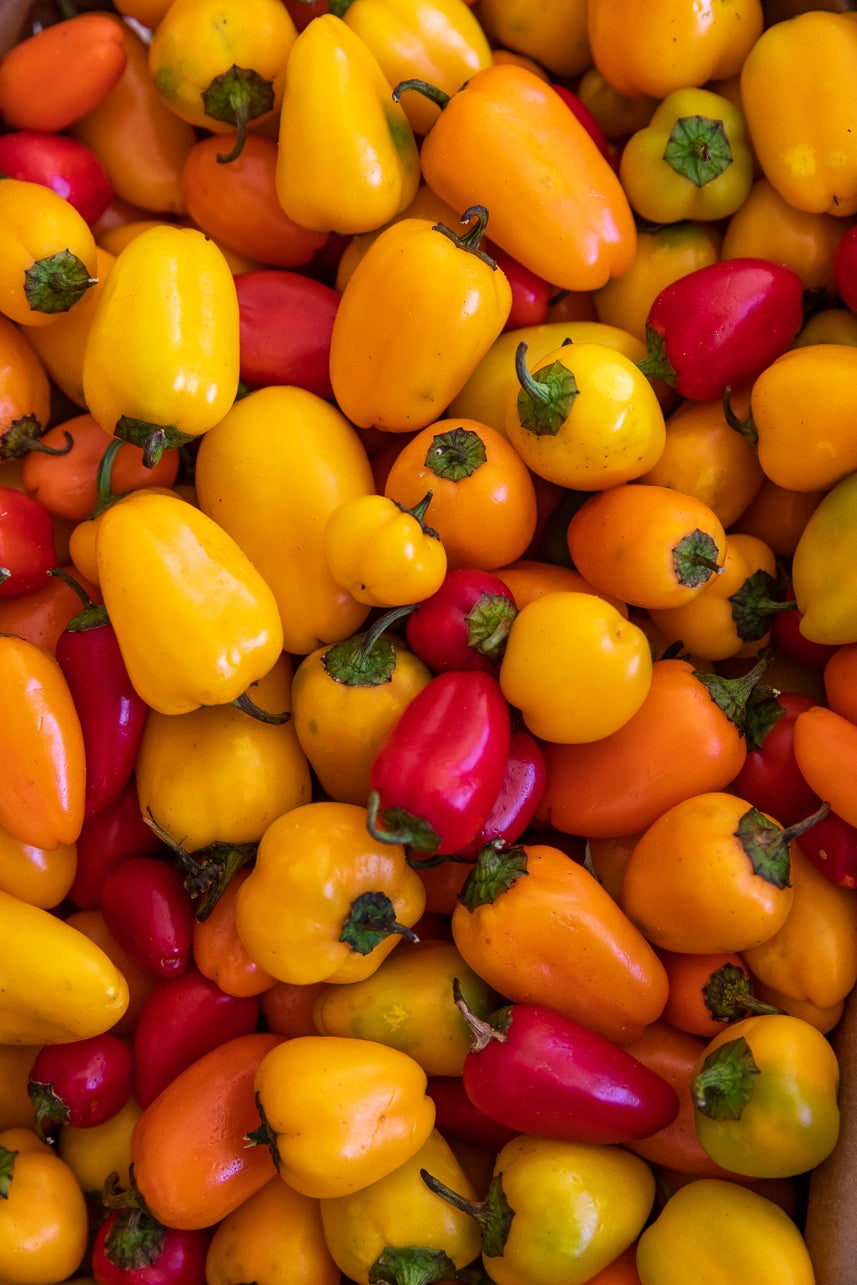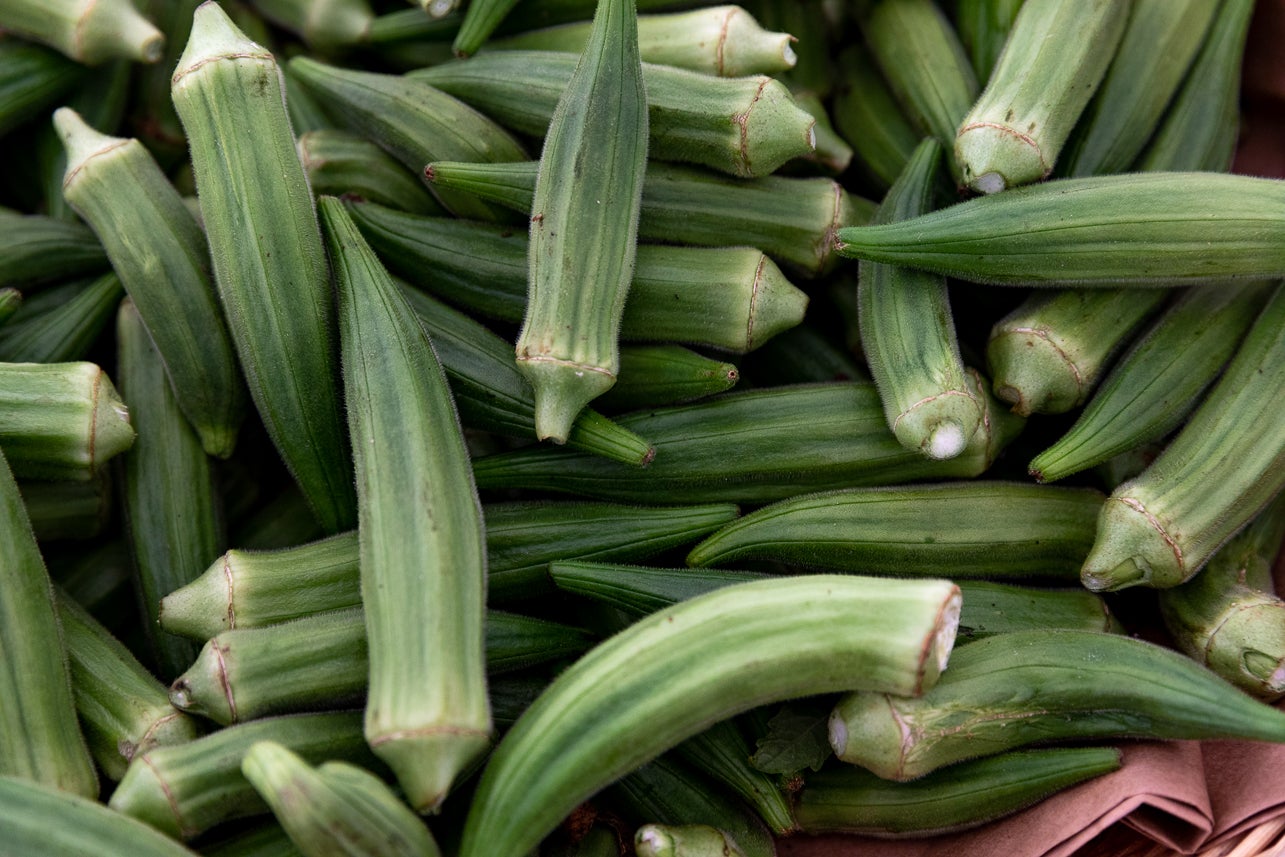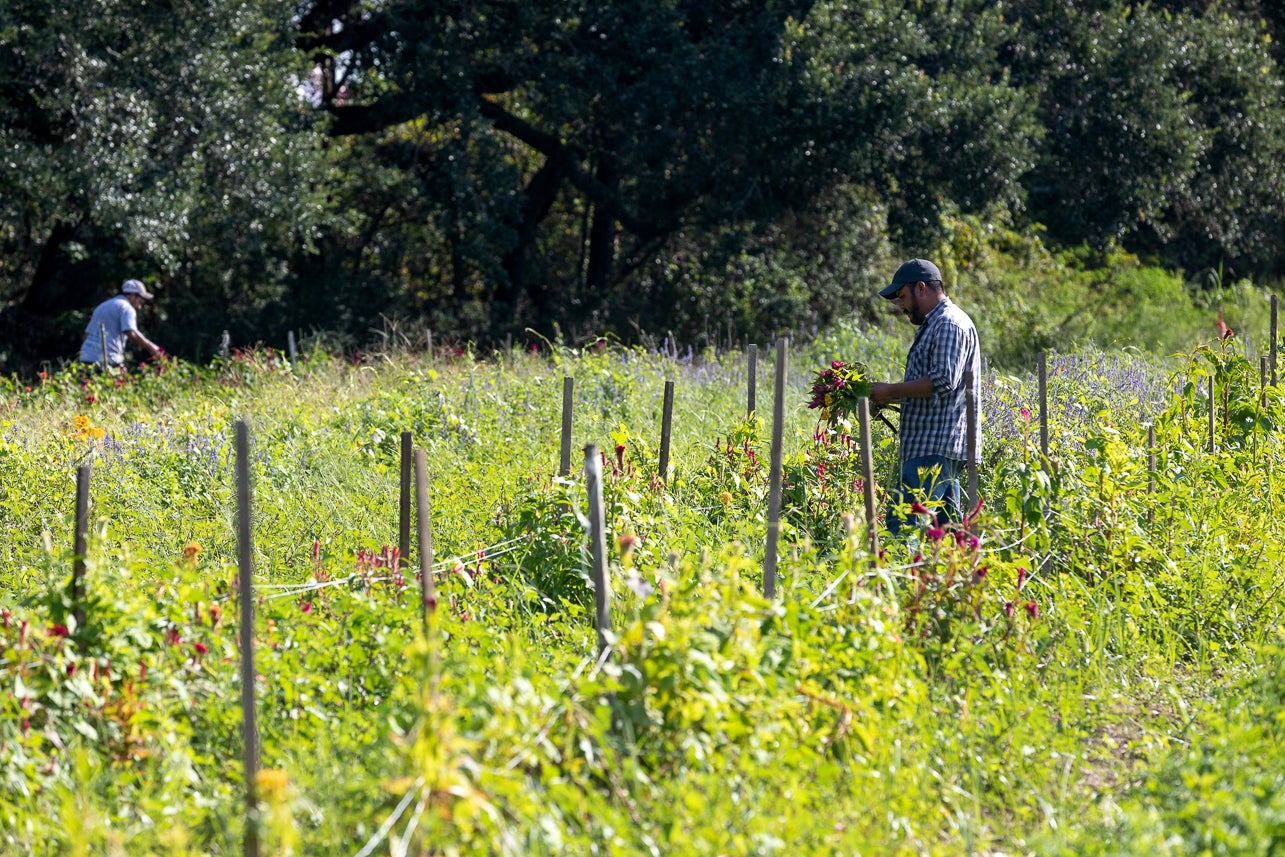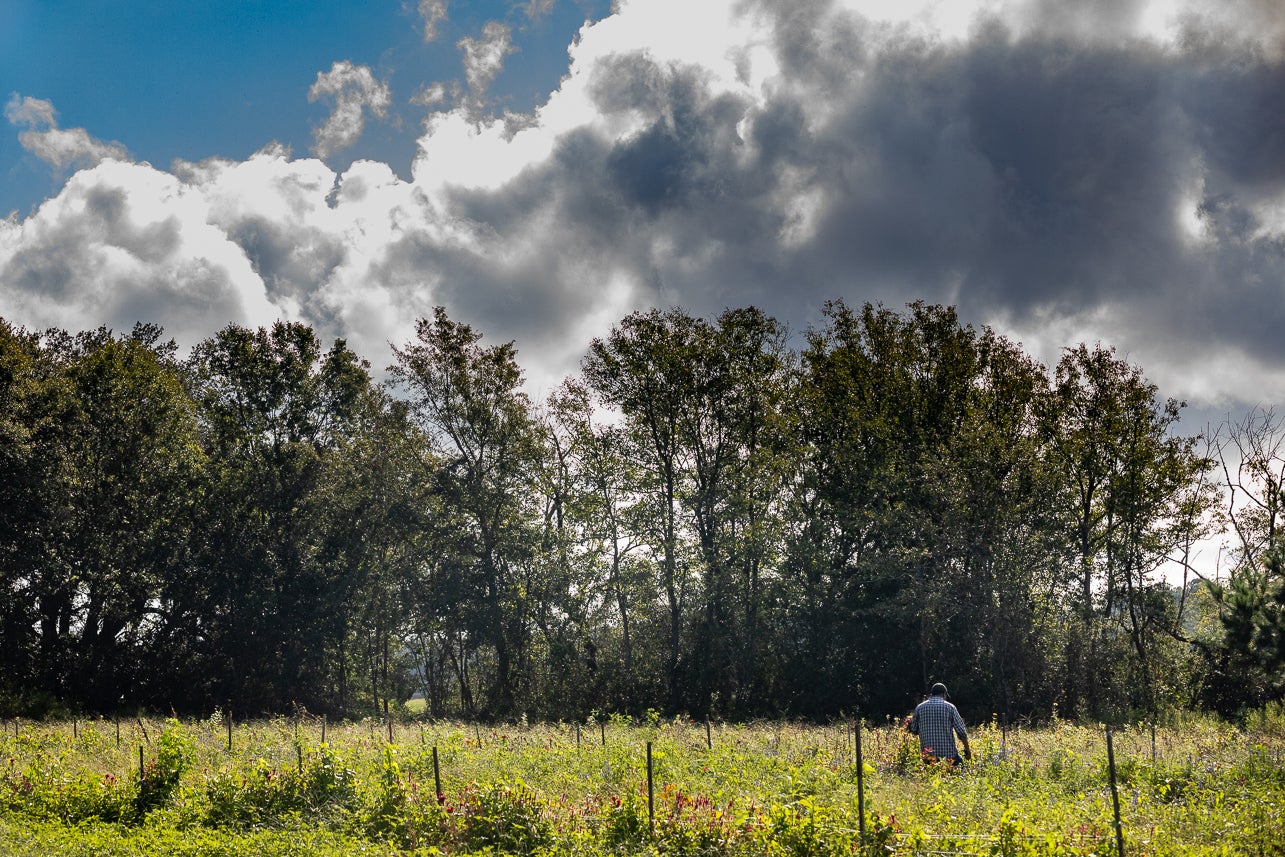The College of Charleston Farmers Market is a great place for students to find fresh, local produce and products – and it’s a good opportunity for students to learn about where their food comes from, too.
The Farmers Market is kicking off its spring 2020 season on Wednesday, Feb. 19, from 11 a.m. to 2 p.m. along College Way between the Cistern Yard and the Rita Liddy Hollings Science Center. An additional farmers market will be held as part of the Center for Sustainable Development’s Sustainability Street Fair on March 27.
Student Adelaide Bates, an urban studies major who helped launch the College’s Farmers Market and also works part-time as Dining Services’ sustainability coordinator, visited some of the farms and kitchens that supply products to the market, thereby connecting students to those growing and making their food.
Here’s a look – from farm to table – at a few of the local products available through the College’s Farmers Market.
Lowcountry Creamery | Bowman, S.C.
An hour outside of Charleston, South Carolina, Lowcountry Creamery sits along a country road in the town of Bowman. Co-owner Patrick Myers spent a morning showing Bates around the farm and giving her an up-close meet-and-greet with his cows. In order to get the rich, creamy quality of Lowcountry Creamery milk, they raise jersey cows, which are known to produce milk with a higher butterfat content. Lowcountry Creamery doesn’t remove any of the butterfat in their products, making the milk much more creamy and rich tasting. The CofC Farmers Market offers Lowcountry Creamery’s greek yogurt, whole milk and their famous chocolate milk. Students can also find Lowcountry Creamery’s milk in dining halls through a partnership with Borden.

Cocoa Academic | Charleston, S.C.
Bethany Moore, owner and chocolatier of Cocoa Academic, first started her bean-to-bar confection shop in Charleston in 2016. Focused on producing responsibly made chocolate, Moore uses as much of the cocoa pod as she can, and the cocoa bean husks are ground and placed into tea bags for her Cocoa Husk Tea. Moore also uses the beans to create Chocolate Dust, a confection that can be added to coffee when it’s brewing. Her Southern-inspired gourmet chocolate bars range in flavor from Brackish Blend and Carolina Reaper to Charleston Sweet Tea and Southern Salted Pecan. Moore’s personal favorite flavor is Sweet Mint.
Vertical Roots | Daniel Island, S.C.
Vertical Roots is a cutting-edge urban farm that specializes in hydroponic indoor farming. Working in conjunction with Tiger Corner Farms, a manufacturing company that builds hydroponic farms out of repurposed shipping containers and Box Car Central – a technology company that controls, integrates, automates and monitors all aspects of the farming environment – Vertical Roots grows a variety of leafy greens, including Green Oak Lettuce, Red Oak Lettuce, Arugula and a house spring mix of tender and sweet lettuces, among others. In addition to being available at the College’s Farmers Market, Vertical Roots’ produce can be found in many of CofC’s dining halls.

Hickory Bluff Berry Farm | Holly Hill, S.C.
Walter and Cathy Earley are part of a history of family farming on the 100-plus acres that make up Hickory Bluff Berry Farm, following in the footsteps of Walter’s father, who began working the land in Holly Hill, South Carolina, in 1948. After retiring from the Department of Agriculture as a conservationist, Walter, along with his wife Cathy, decided to open the farm as a retirement hobby and family project. Their farm grows strawberries, blueberries and blackberries, as well as farm fresh veggies. The College also offers Hickory Bluff Berry Farm produce in its dining halls.
Rosebank Farms | Johns Island, S.C.
Located about 20 miles from the College of Charleston campus on Johns Island, South Carolina, Rosebank Farms grows a variety of fruits and vegetables as well as fresh-cut flowers. Owned and operated by farmer Sidi Limehouse, the 75-acre Rosebank Farms grows tomatoes, eggplant and okra – truly locally sourced food for CofC students. Limehouse’s produce can be found at the College’s Farmers Market as well as in CofC’s dining halls.
One Love Kombucha | Charleston, S.C.
Sourced with ingredients from South Carolina farms, One Love Kombucha‘s beverages honor traditional brewing techniques to create a drink that’s low in sugar and high in beneficial probiotics. One flavor of One Love Kombucha’s fermented teas is a turmeric trio that features carrots from Rosebank Farms and organic turmeric from Spade & Clover Gardens on Johns Island. Muscadine grapes from Hyman Vineyards in Conway, South Carolina, can be found in One Love’s muscadine grape kombucha.
GrowFood Carolina | Charleston, S.C.
GrowFood Carolina sources a variety of produce and fresh agricultural products to the College’s Farmers Market. Serving as a a local food hub that supports area farmers with sales, marketing, logistics, warehousing and distribution services, GrowFood Carolina collects everything from squash and lettuce to milk and eggs from farmers across the region and then distributes it to restaurants and vendors, including CofC. GrowFood Carolina provides products and food to CofC’s Farmer’s Market, dining halls and Market 159.
All Photos by Heather Moran
Story by Amanda Kerr

